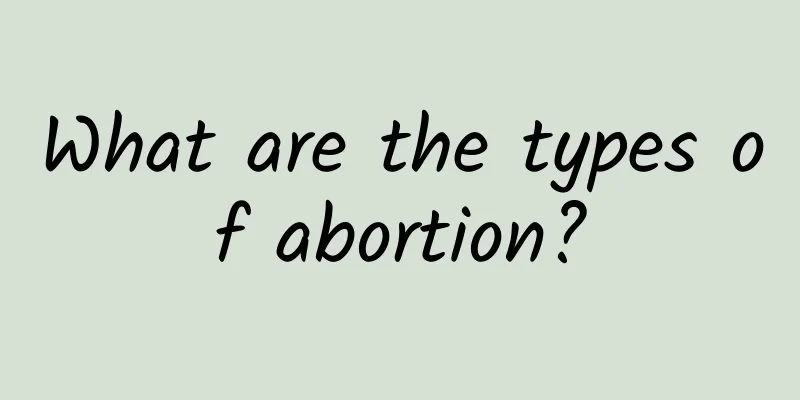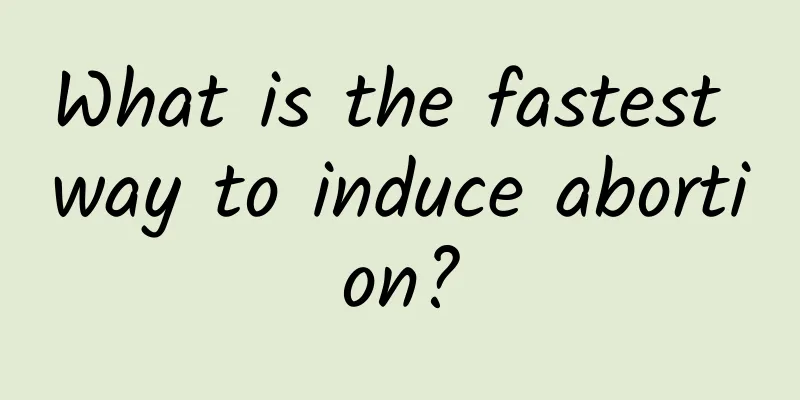What are the types of abortion?

|
As we all know, the experience of miscarriage can easily cause a hidden worry for the next pregnancy. Miscarriage can cause trauma to the uterus and sometimes may cause infection, affecting further pregnancy. So, unless it is absolutely necessary, you must not choose to terminate the pregnancy artificially. So, how many types of miscarriage are there? Please follow the editor to see the introduction below. Threatened abortion: The main symptoms are a small amount of vaginal bleeding and mild lower abdominal pain or back pain. During the gynecological examination, the cervix is not open and the size of the uterus is consistent with the month of pregnancy. The urine test is positive. The treatment at this time should be to preserve the fetus - that is, rest in bed and refrain from sexual intercourse. · Miscarriage is inevitable: The amount of bleeding is large, often exceeding the amount of menstruation, with paroxysmal lower abdominal pain and even water rupture. In this case, you should go to the hospital in time to empty the uterus as soon as possible. Complete miscarriage: After a short period of abdominal pain, the embryonic tissue is completely expelled, the abdominal pain stops, and the bleeding decreases. Generally, no treatment is required. Incomplete abortion: Part of the embryo or placenta has been expelled, but part remains in the uterus. Heavy bleeding and even shock may occur. Infectious abortion: Incomplete abortion without timely uterine cleaning, or self-induced abortion without disinfection can cause intrauterine infection. Fever, lower abdominal pain, vaginal discharge of pus and blood with a foul odor are common. At this time, you should go to the hospital for treatment in time. ·Miscarriage: Refers to the embryo that has died for more than two months and has not been expelled. It is manifested by small amounts of frequent vaginal bleeding, dark in color, and no abdominal pain. The uterus no longer grows, but shrinks instead, and the urine test turns negative. Because the embryo tissue dries up, it sticks to the uterine wall and is not easy to be expelled. Habitual abortion: Spontaneous miscarriage that occurs more than three times in a row is called habitual miscarriage. Its characteristic is that each miscarriage almost occurs in the same month of pregnancy. Its treatment is mainly to find out the cause and then treat it. The above is an introduction to the types of abortion. I hope it will be helpful to you. |
<<: Introduction to common knowledge about abortion
>>: Introduction to artificial abortion
Recommend
Belly-baring outfits are popular in summer! Leg lifts to slim your belly
This summer, belly-revealing outfits are very pop...
7 magic tools to help with recovery after COVID-19 diagnosis! Nutritionists teach you what to eat when you have a fever, sore throat, cough, or phlegm?
The number of confirmed cases of COVID-19 has exc...
What are the common dangers of cervicitis?
Cervical diseases are very common in clinical pra...
Can I eat cantaloupe during my period? Don’t eat too much at once
You can usually eat cantaloupe during your period...
How to treat cervicitis in women physically? 5 ways to treat cervicitis physically
Cervicitis is a common disease among women of chi...
Postpartum slimming lower body pelvic acupuncture to promote metabolism
In addition to paying attention to the baby's...
Clinical manifestations and diagnosis of menopause
Menopause is a process that every woman must go t...
Can abortion cause ovarian cysts? What are the prevention methods?
Can abortion cause ovarian cysts? Are there any p...
How long does it take to treat mild cervical hypertrophy?
The treatment time for mild cervical hypertrophy ...
Does the left ovarian cyst also hurt on the right side? How to treat it?
If you have a left ovarian cyst, pain is inevitab...
The dangers of Bartholinitis
At present, with the continuous improvement of hu...
Just can’t lose weight? It turns out that anemia affects metabolism.
Can’t lose weight no matter what you do? Be caref...
What are the examination methods for hydatidiform mole?
Molar pregnancy, many female friends heard about ...
What are the symptoms of uterine fibroids? What are the symptoms of uterine fibroids?
What are the symptoms of uterine fibroids? What a...
The most important symptoms of pelvic inflammatory disease in daily life
Pelvic inflammatory disease is a common disease i...









